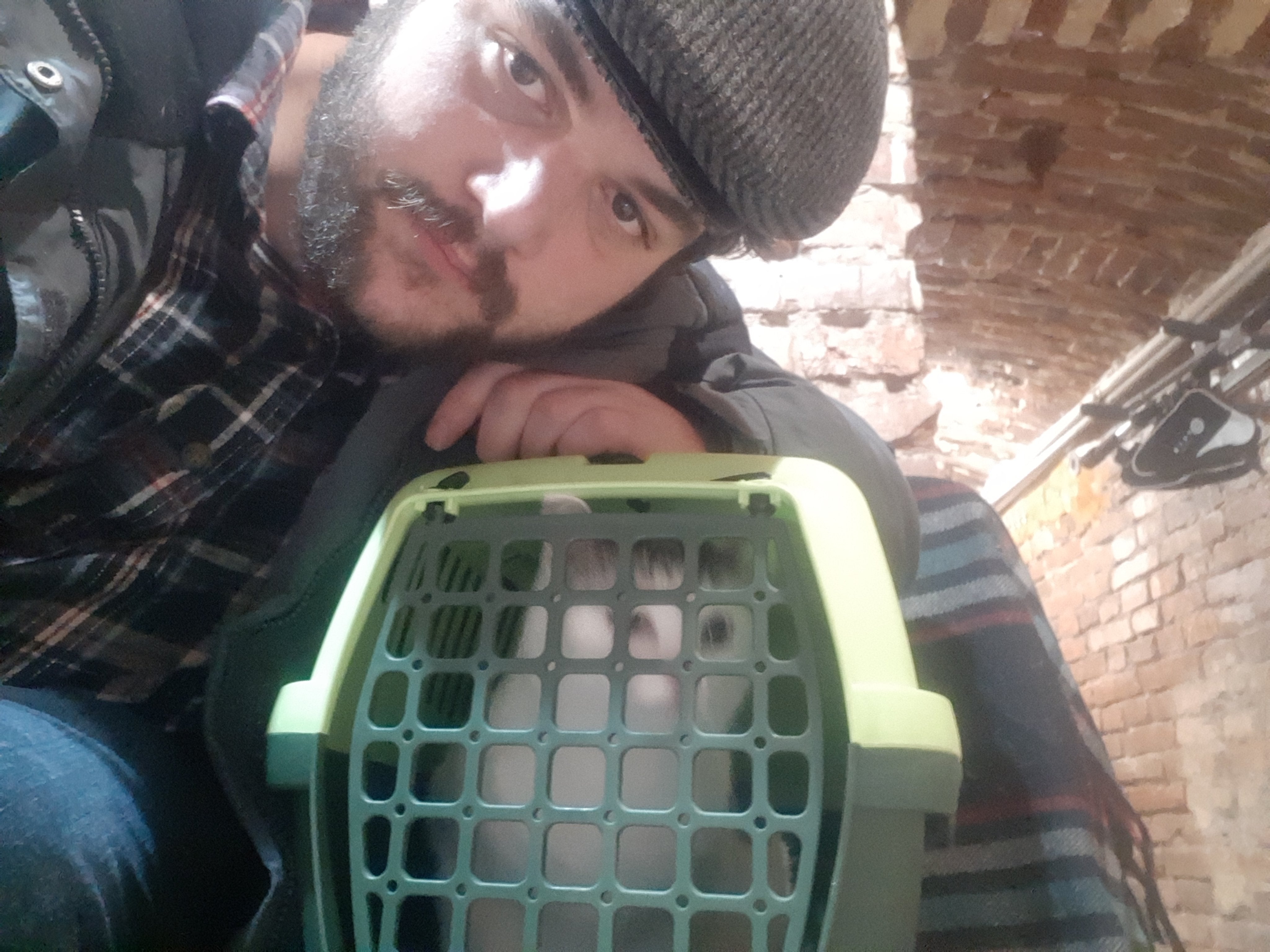Russia trying to cause terror but Lviv will stay safe, says American in Ukraine
‘This is where I’m supposed to be right now,’ Joel Wasserman said of staying in western Ukraine after recent strikes on Lviv’s outskirts.

Your support helps us to tell the story
From reproductive rights to climate change to Big Tech, The Independent is on the ground when the story is developing. Whether it's investigating the financials of Elon Musk's pro-Trump PAC or producing our latest documentary, 'The A Word', which shines a light on the American women fighting for reproductive rights, we know how important it is to parse out the facts from the messaging.
At such a critical moment in US history, we need reporters on the ground. Your donation allows us to keep sending journalists to speak to both sides of the story.
The Independent is trusted by Americans across the entire political spectrum. And unlike many other quality news outlets, we choose not to lock Americans out of our reporting and analysis with paywalls. We believe quality journalism should be available to everyone, paid for by those who can afford it.
Your support makes all the difference.An American living in Lviv has said that while recent missile strikes on the outskirts of the city are “trying to cause terror”, Russia does “not have the strength or ammunition” to depopulate western Ukraine.
Joel Wasserman, 30, has lived in Ukraine for four years, and moved to the western city of Lviv at the end of January when he began to worry about military action in Kyiv.
Mr Wasserman, who is originally from a suburb near Washington DC and now works as a copywriter and translator, was living in the capital but is “fairly confident” Lviv will “remain relatively safe”.
“There is a point that (Russia) are trying to cause terror,” Mr Wasserman told the PA news agency.
“They do not have the strength or the ammunition to do that in western Ukraine.
“They need to save their ammunition and their missiles and bombs for the east.”
Mr Wasserman said the military action has not “particularly changed the mood” of those living in Lviv.
“I am not particularly more worried than I was yesterday,” he said.
“I’m quite close to the city centre… if Putin were to launch a strike near me, he’d risk killing far more big-name international journalists than he is likely willing to.”
Mr Wasserman added: “This is where I’m supposed to be right now, I feel a pull to be here and be in solidarity.
“I have people in the United States who will tell me if it’s time to go and that point has not come yet – I do not expect it to come any time soon.
“I know this country well… I’ve got a journalist coming in from the United States and I’m going to be doing interpretation work.
I've got a job to do here, I've got a mission here, and it's where I need to be
“I’ve got a job to do here, I’ve got a mission here, and it’s where I need to be.”
Mr Wasserman was in Lviv the day Russia began military action in Kyiv on February 24, but explained how his girlfriend had arrived in the capital the day before to persuade her mother to leave.
“It was a very frustrating and frightening day,” he said.
“I felt powerless to help and I felt powerless to calm her down, because I didn’t have anything calming to say.
“I was legit concerned that within days the Russians would cut off the city.”
Mr Wasserman and his girlfriend are now both in Lviv, the invasion being a “shock” to the pair.
“The security situation in this part of the world is something I’ve studied for a long time, something I’ve built up some expertise in,” Mr Wasserman explained.
“Nearly 15 years of studying this part of the world, I was trying to use that knowledge to keep (my girlfriend and loved ones) safe, and they just didn’t see the threats as very likely to happen.
“I was even shocked that they started striking Kyiv the first night.”